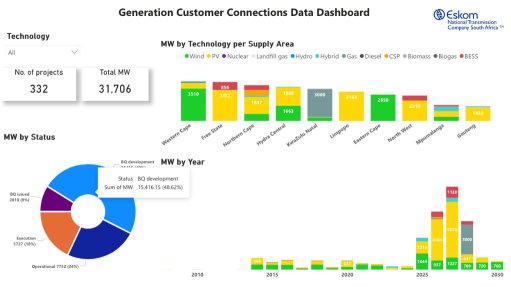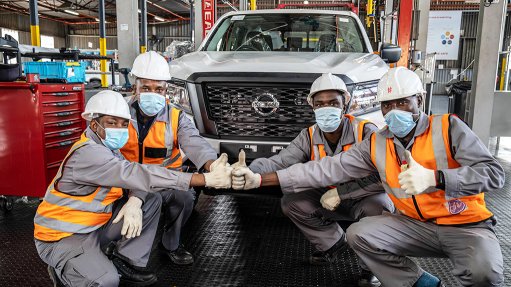The Use and Benefits of Gel-Based Batteries
This article has been supplied.
Kelvin Naidoo, Manufacturing and Technical Director of AutoX.
AutoX is the manufacturer of the leading automotive battery brands Willard and SABAT and the official distributor of the world renowned VARTA automotive batteries.
Vehicles, from passenger cars to commercial, use lead-acid batteries, also known as a flooded battery. This is because the electrolyte, namely the chemical that facilitates the production of the electrical current, is in a liquid state. This is why most car batteries eventually leak if they are turned upside-down or if the battery case is damaged.
On the other hand, a gel-based lead-acid battery has the electrolyte immobilised in a gel (hence its name) which is similar to the gels often used as drying agents and in babies’ nappies. Immobilising the acid in this way has several advantages, other than the obvious spill-proofing.
However, like most good things, it comes at a cost and engineers have to balance this cost against the benefits.
Gel batteries perform better than flooded lead-acid batteries in that they are naturally spill-proof. They also perform better for certain types of applications, cases where the battery needs to discharge for a long time and then recharge. This is typically in an inverter application during load shedding or in a solar system where the battery discharges at night and needs to re-charge in the day.
For these applications, gel batteries perform better than flooded batteries. Modern flooded car batteries can perform this type of cycle, but they won’t last.
A gel battery is able to successfully perform these charging and discharging cycles by ensuring that the positive and negative plates in the battery are always balanced by something called “oxygen recombination”.
In addition, the chances of the internal composition of the battery shedding its active materials is smaller because, within the battery itself, there is no liquid movement. By comparison, a flooded lead-acid battery has the effect of constantly “washing” the active materials, thereby reducing its overall integrity.
However, there are no free lunches. What makes gel batteries work well in cycling applications also makes them poor in traditional starting applications, such as turning on the vehicle’s ignition where very high currents are called on for short periods. Gel batteries are therefore poor at cranking, size for size that is. Obviously, you can still start a vehicle with a gel battery, but it will need to be a larger, more powerful battery.
The process of manufacturing the gel battery is also somewhat more complex which adds some cost to the product.
At the end of the day, the application should decide the choice of technology and gel batteries offer a better solution for standby applications such as inverters and solar backup.
Article Enquiry
Email Article
Save Article
Feedback
To advertise email advertising@creamermedia.co.za or click here
Comments
Announcements
What's On
Subscribe to improve your user experience...
Option 1 (equivalent of R125 a month):
Receive a weekly copy of Creamer Media's Engineering News & Mining Weekly magazine
(print copy for those in South Africa and e-magazine for those outside of South Africa)
Receive daily email newsletters
Access to full search results
Access archive of magazine back copies
Access to Projects in Progress
Access to ONE Research Report of your choice in PDF format
Option 2 (equivalent of R375 a month):
All benefits from Option 1
PLUS
Access to Creamer Media's Research Channel Africa for ALL Research Reports, in PDF format, on various industrial and mining sectors
including Electricity; Water; Energy Transition; Hydrogen; Roads, Rail and Ports; Coal; Gold; Platinum; Battery Metals; etc.
Already a subscriber?
Forgotten your password?
Receive weekly copy of Creamer Media's Engineering News & Mining Weekly magazine (print copy for those in South Africa and e-magazine for those outside of South Africa)
➕
Recieve daily email newsletters
➕
Access to full search results
➕
Access archive of magazine back copies
➕
Access to Projects in Progress
➕
Access to ONE Research Report of your choice in PDF format
RESEARCH CHANNEL AFRICA
R4500 (equivalent of R375 a month)
SUBSCRIBEAll benefits from Option 1
➕
Access to Creamer Media's Research Channel Africa for ALL Research Reports on various industrial and mining sectors, in PDF format, including on:
Electricity
➕
Water
➕
Energy Transition
➕
Hydrogen
➕
Roads, Rail and Ports
➕
Coal
➕
Gold
➕
Platinum
➕
Battery Metals
➕
etc.
Receive all benefits from Option 1 or Option 2 delivered to numerous people at your company
➕
Multiple User names and Passwords for simultaneous log-ins
➕
Intranet integration access to all in your organisation


















